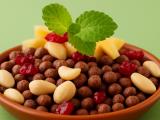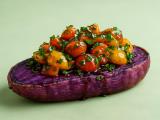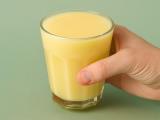In Japan, they have a completely different relationship with food. Food is not just something we eat to survive, but a way of showing respect to our bodies. That's why many Japanese nutritionists claim that the secret to health is not in expensive supplements or medications, but in simplicity and moderation, and above all, in avoiding the types of foods that we almost all have at home, which quietly harm us.
- Processed Meat - The Hidden Enemy in Sandwiches
In the fast pace of life, we often reach for sausages, hot dogs, or burgers because they are convenient. But a study by the World Health Organization (WHO) in 2020 showed that just 50 grams of processed meat per day (less than one sausage!) increases the risk of colorectal cancer by 18%.
Processed meat contains nitrites, chemical compounds used to preserve color and extend shelf life. When these combine with proteins in the body, they can form nitrosamines, substances that are proven to cause cancer.
Additionally, these products contain large amounts of trans fats, which damage blood vessels and increase the risk of heart disease. Trans fat refers to artificially altered fat that the body does not break down correctly. The body recognizes it as foreign and deposits it on the walls of blood vessels.
Instead of reaching for sausages, opt for tofu, legumes, or even homemade plant-based patties made from beans, lentils, and oats. If you do eat meat, choose unprocessed varieties, like grilled chicken thigh, boiled turkey, or fish.
Interesting Fact: In Okinawa, the island with the highest number of centenarians in the world, people consume only 10% of the meat compared to Westerners but have four times fewer heart diseases.
- Healthy Breakfast from a Box - Sugar Under Another Disguise
The packaging may say "fit," "light," or "added fiber," but when we look at the composition, we see that most cereals and granolas contain between 20 and 30 grams of sugar per 100 grams of the product. This means that just one bowl of cereal exceeds the recommended daily sugar intake for an adult!
According to the European Food Safety Agency (EFSA), the average European consumes around 95 grams of sugar per day, which is almost three times more than recommended by experts. Sugar is a silent saboteur that initially provides energy, then causes a sudden drop. The body then craves for a new dose, leading to a vicious cycle of fatigue and overeating.
Instead of industrial cereals, try natto. These are fermented soybeans with a strong odor but full of probiotics (good bacteria that regulate digestion). Although natto may not have a taste that everyone loves, it contains vitamin K2 and prevents calcium accumulation in the veins.
If natto is not available in stores, you can easily replace your morning meal with oatmeal topped with cinnamon, flaxseed, and apple. This way, you will consume natural sugars and fibers that will keep you full longer.
- Sugary Drinks - A Sugar Assault on the Body
A carbonated drink may look refreshing, but the body sees it as an attack. One can usually contains around 35 grams of sugar, equivalent to seven teaspoons! If you drink two cans a day, you consume over 25 kilograms of sugar in a year just from beverages.
A study by the American Harvard T.H. Chan School of Public Health in 2022 showed that regular consumption of sugary drinks increases the risk of type 2 diabetes by 26% and heart diseases by 20%.
Many believe that diet versions are better, but unfortunately, they are not. Artificial sweeteners like aspartame and sucralose can disrupt the functioning of intestinal bacteria, leading to a slower metabolism and increased appetite. In a study by Yale University in 2021, it was found that people who regularly drink zero-calorie beverages consume, on average, 10% more calories throughout the day than those who drink plain water.
The best alternative? Plain water with a slice of lemon, mint, or ginger. If you want something fizzy, opt for natural mineral water. It even helps your body balance acidity.
- Creamy Cheeses and Full-Fat Dairy Products - Pleasant but Heavy
Milk and cheese have been part of our diet for centuries, but today's products are quite different from those known to our grandparents. Industrial milk often contains traces of antibiotics and growth hormones, as cows in factory conditions do not live naturally.
Creamy cheeses, such as Philadelphia or mascarpone, contain more than 30% fat, mostly saturated. An excess of these fats burdens the liver and blood vessels.
We suggest trying kinako, roasted soybean flour with a nutty flavor and high levels of plant-based proteins. In Japanese cuisine, it is even used for desserts. Although kinako is not common in many places, you can substitute it with tahini paste (sesame cream) or a mixture of ground walnuts and oats.
Interesting Fact: A study in 2023 published in the journal Nutrients showed that people who regularly consume plant sources of calcium (broccoli, almonds, tofu) have no lower bone density compared to those who drink cow's milk.
- Sweets - Small Pleasures, Big Consequences
Chocolate bars, candies, caramels - we all have them at home just in case. But the truth is, sweets do not satisfy hunger, instead, they increase it. According to a 2020 study published in the Journal of Nutrition, consuming sweets releases the dopamine hormone, which is also released when playing games or using social media. Therefore, the brain quickly develops a habit of craving more.
It is easiest to give up sugar if we find more natural ways to satisfy the craving for sweetness. Many people swear by seed and honey mousse or frozen bananas. If you choose chocolate, opt for dark chocolate with at least 70% cocoa, as it contains antioxidants that protect cells from aging.
According to the World Health Organization, adults should consume a maximum of 25 grams of sugar per day, which is roughly 6 teaspoons. Unfortunately, we consume an average of about 90 grams per day, almost four times more!
Health is not a coincidence, but a daily decision
Every bite is a decision whether we will help or harm our bodies. The body is not a machine that works non-stop. It is a living being that craves balance.
Traditional medicine has known this for a long time. Our ancestors did not know terms like antioxidants or omega-3, but they knew that cabbage in winter was a remedy, and nettle tea cleansed the blood.
Therefore, stick to these pieces of advice:
- Eat as little processed food as possible.
- Drink more water than anything else.
- Enjoy local, seasonal, and simple foods.
If you follow these for a week, you will already notice changes: more energy, better sleep, less bloating, and a better feeling in your body. After a month, you will also have better skin and a stronger immune system.
Health is not a luxury. It is the result of small decisions we make every day. And the most beautiful thing about all this is that the best solutions are usually those that you already have at home. You just need to look at them with the right perspective...









 Would you like to be informed about news on the website?
Would you like to be informed about news on the website?

